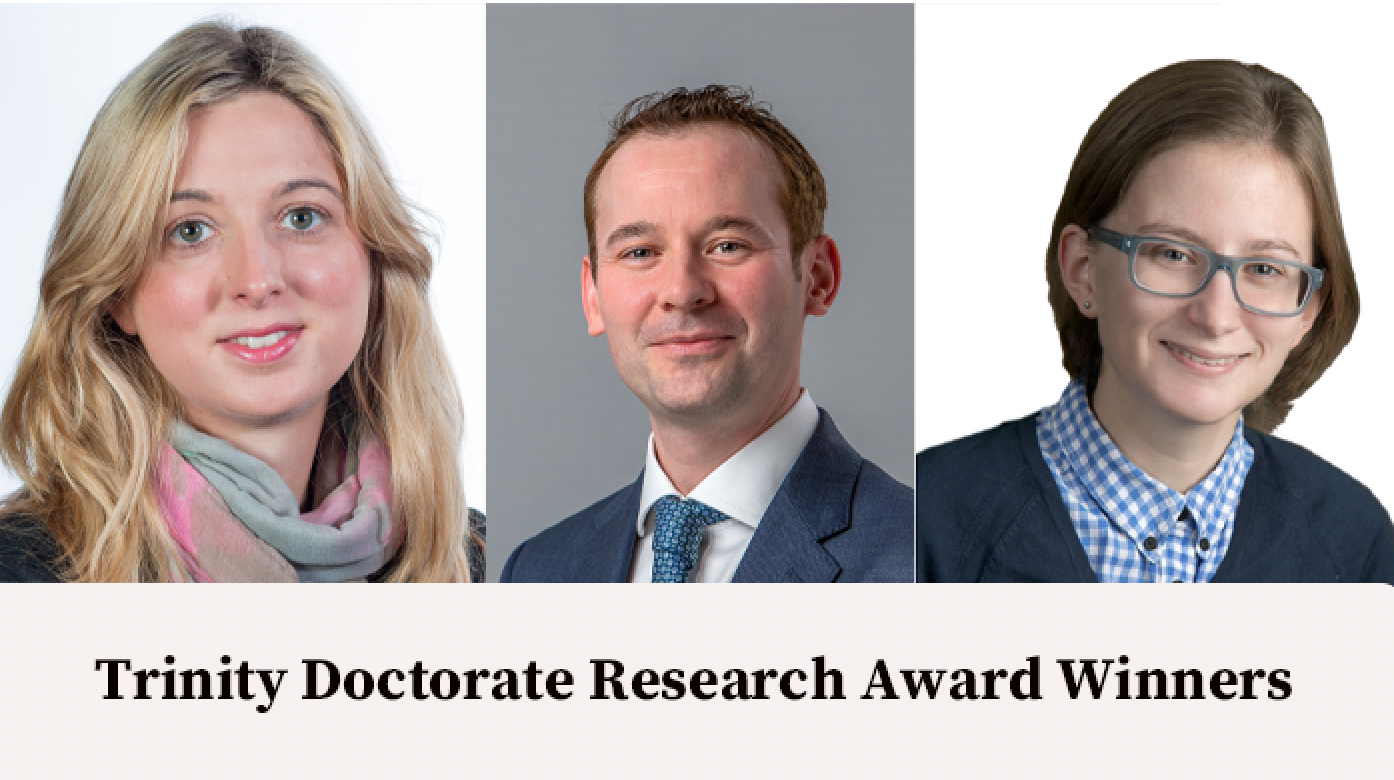Trinity Doctorate Resaearch Award Winners - Law School
Congratulations to our 3 colleagues who were announced winners of the Trinity Research Doctorate Awards.
Congratulations to our three colleagues, Rachael Walsh, Sarah Hamill and Desmond Ryan on their group based interdisciplinary research initiatives.
Project Title: Achieving Sustainable Housing Affordably
Project group: Rachael Walsh, Law; Anna Davies, Geography; Sarah McCormack, Engineering; Cian O’Callaghan; Geography; Sarah Hamill, Law
The Achieving Sustainable Housing Affordably (ASHA) research project adopts an interdisciplinary approach to answering the core question of how to transition to sustainable housing in a way that fairly distributes costs and benefits, ensures just procedures for decision making, and considers the need for restorative justice within and beyond communities.
It will answer that question in an interconnected way using skills from engineering, law, and geography to develop technical solutions that enhance housing sustainability while respecting legal parameters for policy making, as well as the social and cultural attitudes and experiences that determine the real-world reception of such solutions.
Project title: Sports-related Concussions and Legal Implications for the 21st Century
Project Group: Matthew Campbell, Genetics; Sarah Doyle, Clinical Medicine; David Loane, Biochemistry; Colin Doherty, Clinical Medicine; Desmond Ryan, Law; Nollaig Bourke, Clinical Medicine; Tamara Boto, Physiology
It is now apparent that concussion in sport is a major problem that needs to be addressed at both a medical and societal level. While there have been major advances in our understanding of the underlying cause of concussive brain injuries, the long-term consequences of repetitive head injuries in the context of combat and collision sports are still not clear.
Added to this, there are now numerous on-going legal cases being taken by ex-professional rugby players seeking redress for the perceived trauma they were exposed to. Therefore, there are 2 critical and fascinating problems emerging. 1) We still do not have a clear understanding of the long-term consequences of repetitive head trauma in rugby and 2) How will the legal system keep pace with fast-evolving scientific and clinical understanding?
Here, we will combine the unique expertise in TCD to create a PhD training programme that will allow for the first ever project aimed at bridging the key scientific, clinical, and legal problems the area faces. We will embed the PhD students from law, biomedical sciences, and clinical medicine in immersive and continuous research meetings so they can get an in-depth understanding of the complexities of basic and clinical research related to sports concussion and key legal issues that need to be resolved in the field. It is envisioned that this programme of research will serve 2 major societal purposes.
It will improve our understanding of concussive brain injuries in general while also ensuring the most pertinent and up-to-date research data can be understood in the context of the Irish legal system. The PhD students who graduate from this programme will have the most unique perspective on the societal and legal implications of their research. They will be equipped with knowledge that will allow them to ultimately carve out their own independent careers. Added to this, we believe this programme will form the blueprint for similar projects aimed at bridging the medico-legal landscape and will pave the way for significant multi/trans-disciplinary funding in the short term.


